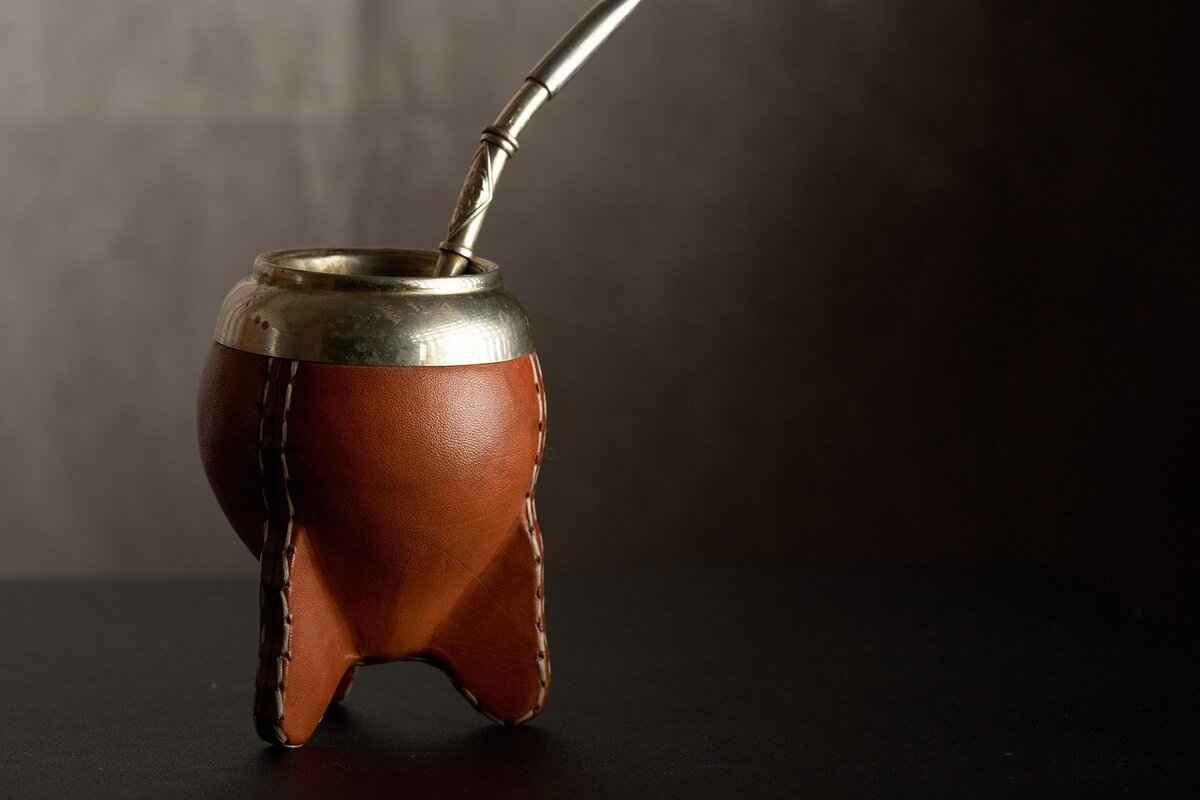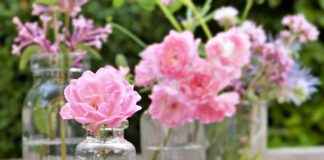This article explores the myriad health benefits of Asian herbal teas, their cultural significance, and how they can contribute to longevity and overall well-being.
Asian herbal teas are unique beverages crafted from a variety of herbs, flowers, and spices, each known for their specific therapeutic properties. These teas are integral to many Asian cultures, often consumed not just for their flavors but primarily for their health benefits. The diversity of ingredients used in these teas reflects the rich cultural heritage and traditional practices of the region.
Asian herbal teas are celebrated for a wide range of health benefits. Regular consumption can lead to improved digestion, enhanced immune function, and reduced stress levels. Understanding these benefits can help you choose the right tea for your needs.
Certain herbal teas, such as ginger and peppermint, are renowned for their digestive properties. These teas can soothe the stomach, alleviate symptoms of indigestion, and reduce bloating. They are often recommended as a natural remedy for various gastrointestinal issues.
- Ginger: Known for its anti-inflammatory properties, it helps in reducing nausea.
- Peppermint: Effective in relaxing the digestive tract and relieving gas.
- Chamomile: Calms the stomach and promotes overall digestive health.
Preparing these herbal teas is straightforward. Simply steep fresh or dried herbs in hot water for several minutes to release their beneficial compounds. This simple process makes it easy to enjoy their health benefits.
Many Asian herbal teas are rich in antioxidants and possess anti-inflammatory properties that can enhance immune function. Regular consumption may help protect against common illnesses, making these teas a valuable addition to your daily routine.
The calming effects of many Asian herbal teas can significantly improve mental health. Ingredients like jasmine and lotus flower are known to reduce anxiety and promote relaxation, making them ideal choices for stress relief.
- Chamomile: Known for its calming effects, ideal for unwinding.
- Lavender: Promotes relaxation and reduces anxiety.
- Green Tea: Contains L-theanine, which helps in stress reduction.
Incorporating herbal teas into your daily routine can be simple and rewarding. Consider starting your day with a cup of green tea or enjoying a soothing herbal blend in the evening to promote relaxation and well-being.
Herbal teas hold a significant place in Asian culture, often utilized in traditional medicine and rituals. Understanding their cultural context enhances appreciation for their health benefits and the traditions surrounding their consumption.
In traditional Asian medicine, herbal teas are prescribed for various ailments. Practitioners often recommend specific blends based on individual health needs, emphasizing the personalized approach to health and wellness.
Many Asian cultures incorporate herbal teas into rituals, such as tea ceremonies, which emphasize their importance in social bonding and health practices. These rituals reflect the deep-rooted respect and value placed on these beverages.
Several Asian herbal teas have gained popularity worldwide due to their unique flavors and health benefits. Exploring these options can help you find your favorite.
- Matcha: A finely ground powder of specially grown green tea, rich in antioxidants.
- Oolong: A traditional Chinese tea known for its complex flavors and health benefits.
- Chrysanthemum: Often consumed for its cooling properties and floral aroma.
Selecting high-quality herbal teas is crucial for maximizing health benefits. Look for organic options and reputable brands to ensure purity and flavor. Quality ingredients lead to better taste and more effective health benefits.
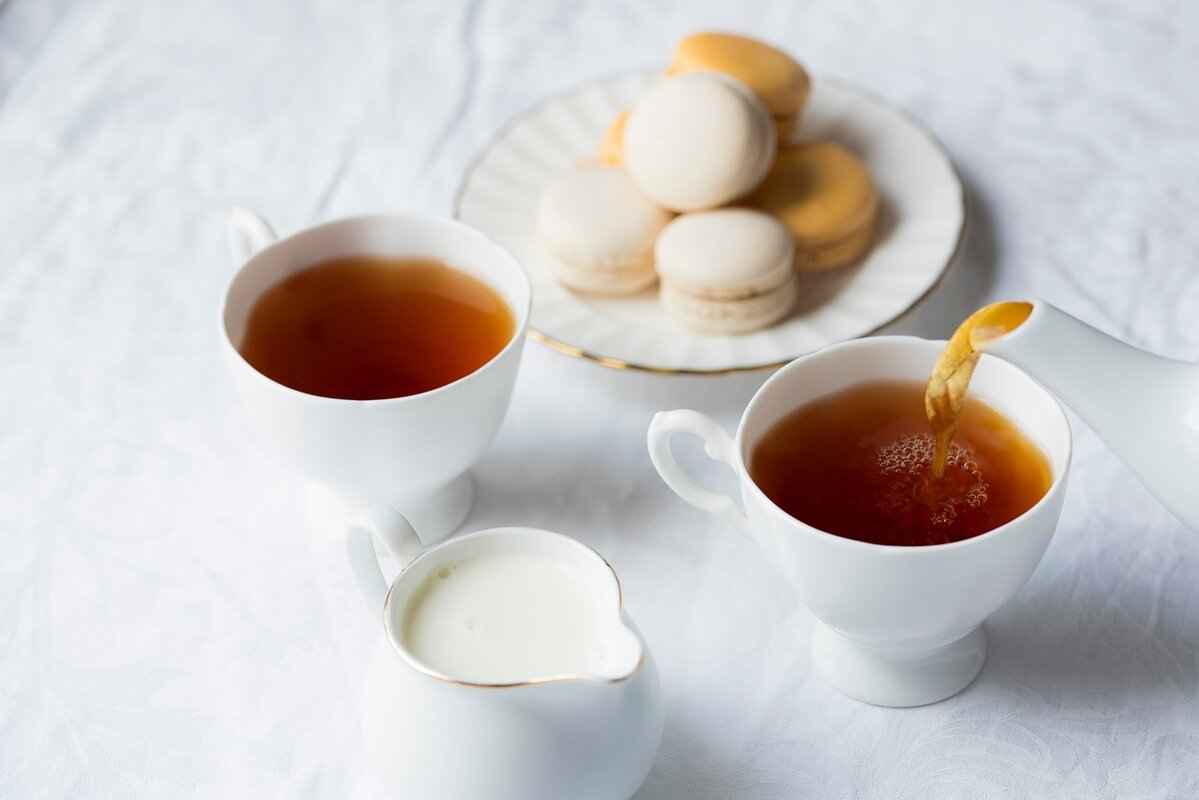
What Are Asian Herbal Teas?
Asian herbal teas have long been cherished for their rich flavors and significant health benefits. These beverages, crafted from a diverse array of herbs, flowers, and spices, are deeply ingrained in the cultural practices of various Asian communities. They are more than just drinks; they represent a tradition of using natural ingredients to promote well-being and longevity.
Asian herbal teas are unique beverages made by steeping various plant materials in hot water. Unlike traditional teas that come from the Camellia sinensis plant, herbal teas can include a wide variety of ingredients, each contributing distinct flavors and health benefits. Common ingredients include:
- Ginger: Known for its spicy kick and digestive benefits.
- Jasmine: Valued for its fragrant aroma and calming properties.
- Chrysanthemum: Used for its cooling effects and potential to relieve fever.
- Lotus Leaf: Believed to aid in weight management and detoxification.
These teas are often consumed not only for their delicious flavors but also for their therapeutic properties. Many Asian cultures believe that these herbal infusions can help maintain balance in the body and prevent illness.
The health benefits of Asian herbal teas are vast and varied. They are recognized for their ability to:
- Improve Digestion: Teas like peppermint and ginger are known to soothe digestive issues.
- Enhance Immune Function: Herbal teas rich in antioxidants can help bolster the immune system.
- Reduce Stress Levels: Ingredients such as chamomile and lavender are often used to promote relaxation and reduce anxiety.
Understanding these benefits can empower individuals to select the right herbal tea that aligns with their specific health goals.
Many Asian herbal teas are specifically formulated to improve digestive health. For instance, ginger tea is renowned for its ability to alleviate nausea and promote healthy digestion. Similarly, peppermint tea can relieve bloating and discomfort, making it a popular choice after meals.
Regular consumption of herbal teas can significantly enhance immune function. Many of these teas contain antioxidants that combat free radicals in the body, helping to prevent illness. For example, the anti-inflammatory properties of green tea and echinacea are often highlighted in discussions about improving overall health and wellness.
In addition to physical health benefits, Asian herbal teas are known for their positive effects on mental health. The calming properties of teas made from ingredients like jasmine and lotus flower can help alleviate symptoms of anxiety and promote a sense of peace and relaxation.
Herbal teas hold a significant cultural importance in many Asian societies. They are often used in traditional medicine practices and rituals. In countries like China and Japan, tea ceremonies are not just social events; they are also a means of promoting mindfulness and appreciation for nature.
Several Asian herbal teas have gained international acclaim due to their unique flavors and health benefits. Popular options include:
- Matcha: A finely ground powder of specially grown green tea, rich in antioxidants.
- Oolong: A partially fermented tea known for its rich flavor and potential weight management benefits.
- Chrysanthemum: Frequently used for its cooling properties and soothing effects.
Exploring these teas can lead to discovering new flavors and health benefits that can enhance your daily routine.
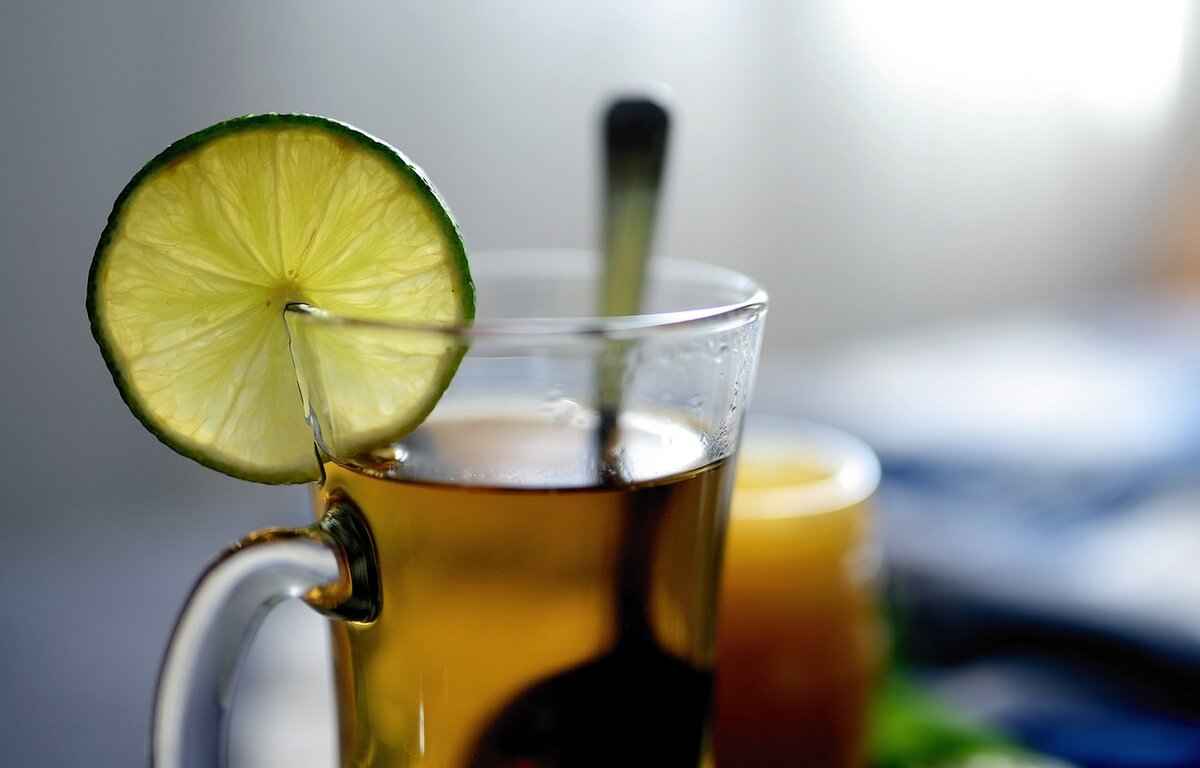
What Health Benefits Do Asian Herbal Teas Offer?
Asian herbal teas are not just delightful beverages; they are also packed with health benefits that can enhance your overall well-being. With roots deeply embedded in traditional medicine, these teas have been utilized for centuries to promote health and longevity. Understanding their benefits can help you make informed choices about which teas to incorporate into your daily routine.
Asian herbal teas are known for a variety of health benefits, including:
- Improved Digestion: Many herbal teas contain natural compounds that aid in digestion.
- Enhanced Immune Function: Rich in antioxidants, these teas can help bolster your immune system.
- Reduced Stress Levels: Certain herbal teas are renowned for their calming effects, helping to alleviate stress.
Specific herbal teas, such as ginger and peppermint, are particularly effective in promoting digestive health. Ginger tea is known for its ability to soothe the stomach and alleviate symptoms of nausea, while peppermint tea can help relieve bloating and gas. These teas work by relaxing the muscles of the gastrointestinal tract and stimulating the production of digestive juices.
Some of the best herbs for digestive health include:
- Ginger: Known for its anti-inflammatory properties.
- Peppermint: Helps relax the digestive system.
- Chamomile: Reduces gastrointestinal discomfort and promotes relaxation.
Many Asian herbal teas are rich in antioxidants and anti-inflammatory properties, which can enhance your immune function. Teas like green tea and echinacea tea are particularly beneficial, as they contain compounds that may help fight off infections and reduce the duration of illnesses. Regular consumption of these teas can provide a natural defense against common colds and flu.
In addition to physical health benefits, Asian herbal teas can significantly improve mental health. Ingredients such as jasmine and lotus flower are known for their calming effects, helping to reduce anxiety and promote relaxation. Drinking these teas can be a great way to unwind after a stressful day.
Teas that are particularly effective for stress relief include:
- Chamomile: Known for its soothing properties.
- Lavender: Often used to promote relaxation and reduce anxiety.
- Green Tea: Contains L-theanine, which can help improve mood and reduce stress.
Incorporating herbal teas into your daily routine is simple and rewarding. You might start your day with a refreshing cup of green tea to kickstart your metabolism or enjoy a calming herbal blend like chamomile in the evening to wind down. Experimenting with different flavors will help you discover which teas best suit your taste and health needs.
Herbal teas are deeply rooted in Asian culture, often used in traditional medicine and rituals. Their cultural significance enhances our appreciation for their health benefits. In many Asian societies, herbal teas are not only consumed for their health properties but also served during social gatherings and ceremonies, symbolizing hospitality and respect.
In traditional Asian medicine, herbal teas are often prescribed for a variety of ailments. Practitioners tailor specific blends to meet individual health needs, ensuring that the therapeutic properties of the herbs are maximized. This personalized approach has contributed to the enduring popularity of herbal teas in these cultures.
Many Asian cultures incorporate herbal teas into rituals, such as tea ceremonies, which emphasize their importance in social and familial bonding. These rituals not only celebrate the flavors and aromas of the teas but also serve as a means of connecting with others, making the act of drinking tea a profound cultural experience.
How Do Herbal Teas Aid Digestion?
Herbal teas have long been celebrated in various cultures for their remarkable health benefits, particularly in aiding digestion. Among the numerous options available, certain Asian herbal teas, such as ginger and peppermint, stand out due to their potent digestive properties. This article delves into how these herbal teas can significantly enhance digestive health and provide relief from common gastrointestinal issues.
Both ginger and peppermint have been used for centuries in traditional medicine to promote digestive health. Their effectiveness lies in their unique compounds that interact with the body to improve gastrointestinal function.
- Ginger: This root is well-known for its ability to stimulate digestion. It contains gingerol, a compound that helps to speed up the emptying of the stomach, reducing feelings of fullness and discomfort.
- Peppermint: The menthol in peppermint acts as a natural antispasmodic, which can help relax the muscles of the gastrointestinal tract. This property makes it particularly effective for alleviating symptoms of bloating and gas.
Indigestion can manifest in various ways, including bloating, gas, and stomach cramps. Ginger and peppermint teas can provide relief through their soothing effects on the stomach and intestines.
| Symptom | Ginger Tea Benefits | Peppermint Tea Benefits |
|---|---|---|
| Bloating | Reduces bloating by promoting faster digestion. | Helps relieve bloating through muscle relaxation. |
| Gas | Minimizes gas production in the digestive tract. | Facilitates the expulsion of gas. |
| Stomach Cramps | Soothes cramps with anti-inflammatory properties. | Relaxes the muscles to alleviate cramping. |
Preparing herbal teas is a straightforward process. Here’s how to make the most of ginger and peppermint for digestive health:
1. For Ginger Tea: - Peel and slice fresh ginger root. - Boil water and add the ginger slices. - Let it steep for 10-15 minutes. - Strain and enjoy, optionally adding honey for sweetness.2. For Peppermint Tea: - Use fresh or dried peppermint leaves. - Boil water and pour it over the leaves. - Steep for 5-10 minutes. - Strain and serve, possibly with a slice of lemon.
While ginger and peppermint teas are generally safe for most individuals, it’s essential to consume them in moderation. Overconsumption may lead to:
- Ginger: Heartburn or digestive discomfort in some people.
- Peppermint: Potential exacerbation of acid reflux symptoms.
It’s always advisable to consult with a healthcare professional before introducing new herbal remedies into your diet, especially for those with existing health conditions or those who are pregnant.
Incorporating ginger and peppermint herbal teas into your daily routine can be a delightful way to support digestive health. Their natural properties not only provide relief from common digestive issues but also enhance overall well-being. Whether enjoyed hot or cold, these herbal teas can be a soothing addition to your wellness regimen.
Which Herbs Are Best for Digestion?
When it comes to maintaining optimal digestive health, certain herbs have stood the test of time, offering a natural solution to many gastrointestinal issues. Among the most recommended are ginger, peppermint, and chamomile. Each of these herbs possesses unique properties that not only promote digestive comfort but also enhance overall gastrointestinal efficiency.
Ginger is renowned for its ability to soothe the stomach and reduce nausea. Its active compounds, such as gingerol and shogaol, have anti-inflammatory properties that can help alleviate symptoms of indigestion and bloating. Furthermore, ginger stimulates the production of digestive enzymes, which aids in the breakdown of food, ensuring better nutrient absorption.
Peppermint is another powerful herb known for its digestive benefits. The menthol in peppermint relaxes the muscles of the gastrointestinal tract, which can ease symptoms of irritable bowel syndrome (IBS) and reduce bloating. Additionally, peppermint tea can help relieve gas and discomfort, making it a popular choice for those seeking relief from digestive distress.
Chamomile is often celebrated for its calming effects, but it also plays a significant role in digestive health. This herb contains antioxidants that can reduce inflammation in the gut. Drinking chamomile tea may help soothe an upset stomach and promote better sleep, which is essential for overall digestive function. Its gentle nature makes it suitable for both adults and children.
Preparing herbal teas for digestive health is a simple yet effective process. Start by selecting fresh or dried herbs. Here’s a quick guide:
- Boil water and let it cool slightly to avoid damaging the herbs.
- Add 1-2 teaspoons of the chosen herb to a teapot or infuser.
- Pour hot water over the herbs and steep for 5-10 minutes.
- Strain the tea and enjoy it warm, optionally sweetened with honey.
Combining these herbs can amplify their effects. For instance, a blend of ginger and peppermint can provide both soothing and invigorating properties, making it a perfect remedy for digestive discomfort. Chamomile can be added to this mix to enhance relaxation and further support digestive health.
In addition to ginger, peppermint, and chamomile, several other herbs can support digestive health:
- Fennel: Known for its ability to reduce bloating and gas.
- Licorice Root: Helps soothe the stomach lining and reduce inflammation.
- Turmeric: Contains curcumin, which has anti-inflammatory properties that can aid digestion.
Incorporating these herbs into your diet can be a simple yet effective way to enhance your digestive health. Whether enjoyed as a tea or added to meals, these herbs provide a natural approach to promoting gastrointestinal comfort.
How to Prepare Digestive Herbal Teas?
Preparing digestive herbal teas is not only straightforward but also a delightful way to enhance your overall health. These teas, derived from various herbs, can provide soothing relief for digestive discomfort while offering a range of additional health benefits. In this section, we will explore the steps to prepare these herbal infusions, the types of herbs that are particularly effective for digestion, and some tips to enhance your tea-drinking experience.
To prepare your herbal tea, you will need:
- Fresh or dried herbs: Options like ginger, peppermint, chamomile, and fennel are excellent choices.
- Water: Use filtered water for the best flavor.
- Optional sweeteners: Honey or agave syrup can enhance the taste if desired.
- Teapot or infuser: A teapot with a strainer or a tea infuser will make the process easier.
Follow these simple steps to brew your digestive herbal tea:
- Measure your herbs: Use about 1 to 2 teaspoons of dried herbs or 1 tablespoon of fresh herbs per cup of water.
- Heat the water: Bring your water to a boil, then let it cool slightly. Ideal steeping temperatures vary by herb, but generally, around 200°F (93°C) is suitable.
- Steep the herbs: Place the herbs in your teapot or infuser and pour the hot water over them. Allow the mixture to steep for 5 to 10 minutes, depending on the herb used. For example, ginger may require a longer steeping time to release its flavors.
- Strain and serve: After steeping, strain the herbs from the tea and pour it into your favorite mug. Add honey or sweetener if desired.
Several herbs are particularly effective in promoting digestive health:
- Ginger: Known for its anti-inflammatory properties, ginger can alleviate nausea and improve digestion.
- Peppermint: This herb relaxes the muscles of the gastrointestinal tract, helping to relieve bloating and gas.
- Chamomile: Often used for its calming effects, chamomile can also soothe the digestive system and reduce indigestion.
- Fennel: Fennel seeds can help reduce bloating and gas, making them a popular choice for digestive teas.
To further enhance your digestive herbal tea experience, consider the following tips:
- Experiment with blends: Combine different herbs for a unique flavor profile and maximize health benefits.
- Drink mindfully: Take time to enjoy your tea, focusing on its aroma and taste to enhance relaxation.
- Pair with meals: Drinking herbal tea after meals can aid digestion and provide a soothing end to your dining experience.
By incorporating these simple steps and tips, you can easily prepare delicious and beneficial herbal teas that support your digestive health. Enjoy the process of brewing and savoring these natural remedies as part of your daily wellness routine.
Can Herbal Teas Boost Immune Function?
Herbal teas have long been celebrated in various cultures, particularly in Asia, for their remarkable health benefits. Among these, the ability of herbal teas to boost immune function stands out as a significant advantage. This article delves into how these teas contribute to enhanced immunity and overall health.
Many Asian herbal teas are rich in antioxidants and possess anti-inflammatory properties. These compounds play a crucial role in supporting the immune system. Antioxidants help combat oxidative stress, which can weaken immune responses, while anti-inflammatory agents reduce inflammation, promoting better health.
- Green Tea: Known for its high levels of catechins, green tea boosts the body’s defenses against pathogens.
- Ginger Tea: Ginger’s anti-inflammatory properties can help reduce the severity of infections.
- Turmeric Tea: Curcumin, the active compound in turmeric, is celebrated for its immune-enhancing effects.
- Echinacea Tea: Often used to prevent colds, echinacea can stimulate the immune system.
Regularly consuming these herbal teas can lead to cumulative benefits. Studies suggest that individuals who incorporate herbal teas into their daily routine experience fewer illnesses. This is attributed to the consistent intake of beneficial compounds that fortify the immune system over time.
Herbal teas can be particularly beneficial for individuals with weakened immune systems, such as the elderly or those with chronic illnesses. The anti-inflammatory and antioxidant properties help in managing symptoms and preventing complications associated with various health conditions.
To harness the full potential of herbal teas, proper preparation is essential. Here’s a simple method:
1. Choose high-quality, organic herbs.2. Boil water and let it cool slightly (around 80-90°C for green tea, 100°C for others).3. Add herbs to the water and steep for 5-10 minutes.4. Strain and enjoy, optionally adding honey or lemon for flavor.
While herbal teas are generally safe, it is essential to consult with a healthcare provider, especially for individuals on medication or those with specific health concerns. Some herbs may interact with medications, so caution is advised.
Incorporating Asian herbal teas into your diet can be a delightful and beneficial way to support your immune system. With a variety of flavors and health benefits, these teas not only enhance well-being but also offer a moment of tranquility in our busy lives. By choosing the right teas and consuming them regularly, you can enjoy a natural boost to your health and longevity.
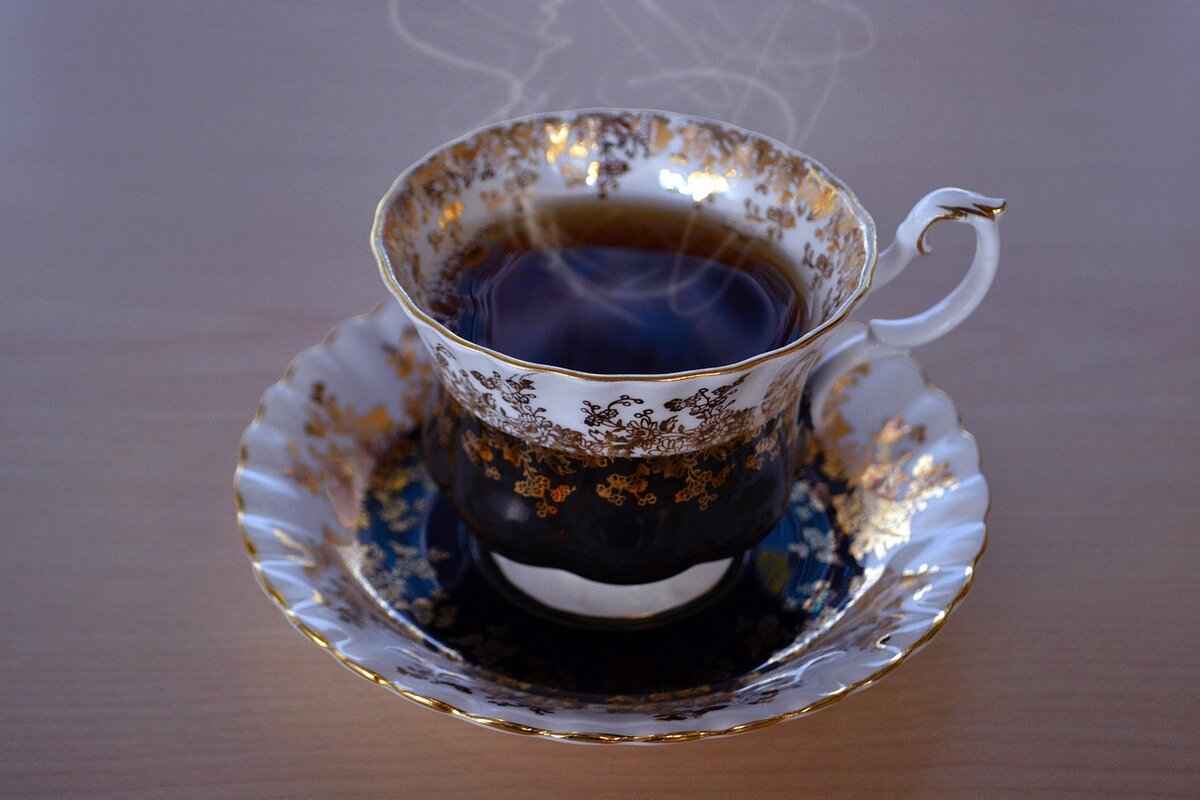
How Do Asian Herbal Teas Promote Mental Well-being?
Asian herbal teas have long been celebrated not only for their delightful flavors but also for their profound impact on mental health. The **calming effects** of many of these herbal infusions can significantly improve overall well-being. Ingredients such as jasmine and lotus flower are particularly renowned for their ability to reduce anxiety and promote a sense of relaxation, making them ideal choices for those seeking mental clarity and emotional balance.
Several key ingredients in Asian herbal teas are specifically known for their mental health benefits:
- Jasmine: Known for its soothing aroma, jasmine tea can help lower stress levels and enhance mood.
- Lotus Flower: This flower is often used in traditional practices to promote tranquility and reduce feelings of anxiety.
- Chamomile: Often consumed before bedtime, chamomile tea is effective in promoting sleep and reducing anxiety.
- Lavender: Renowned for its calming properties, lavender tea can help alleviate stress and improve overall mental clarity.
The effectiveness of these herbal teas lies in their natural compounds. For instance, the antioxidants found in many herbal ingredients can combat oxidative stress, which is often linked to anxiety and depression. Furthermore, the act of sipping a warm beverage itself can be a comforting ritual, providing a moment of pause in a busy day.
When it comes to relaxation, certain herbal teas stand out:
- Green Tea: While it contains caffeine, it also has L-theanine, an amino acid that promotes relaxation without drowsiness.
- Rooibos: Naturally caffeine-free, rooibos is rich in antioxidants and can help reduce stress levels.
- Valerian Root: Often used as a sleep aid, valerian root tea can help calm the mind and reduce anxiety.
Incorporating herbal teas into your daily routine can be both simple and enjoyable. Here are some practical tips:
- Start your day with a cup of green tea to kickstart your metabolism while promoting mental clarity.
- Take a moment in the afternoon to enjoy a cup of chamomile or lavender tea, allowing yourself a break from the daily grind.
- Consider making herbal tea a part of your evening ritual, helping to signal to your body that it’s time to unwind.
In many Asian cultures, the consumption of herbal teas is intertwined with rituals that enhance their calming effects. Engaging in a tea ceremony or simply taking the time to prepare and savor your tea can create a mindful experience that amplifies relaxation. This ritualistic approach fosters a deeper connection to the tea, allowing for a more profound mental and emotional release.
Research supports the mental health benefits of various herbal teas. Studies have shown that components like L-theanine in green tea can improve focus and reduce stress. Additionally, the calming effects of chamomile and lavender have been documented in numerous clinical trials, reinforcing their status as effective natural remedies for anxiety.
In conclusion, Asian herbal teas are not only a delightful addition to your beverage choices but also a powerful ally in promoting mental well-being. By understanding the specific benefits of ingredients like jasmine and lotus flower, and incorporating these teas into your daily routine, you can cultivate a more relaxed and balanced mindset.
Which Teas Are Best for Stress Relief?
When it comes to finding natural remedies for stress relief, herbal teas have emerged as a popular choice. Many people turn to these comforting beverages not only for their soothing flavors but also for their potential health benefits. In this section, we will explore some of the most effective herbal teas for stress relief, their unique properties, and how they can help you unwind after a long day.
Herbal teas are often favored for their calming effects and ability to promote relaxation. Unlike caffeinated beverages, which can increase anxiety levels, herbal teas are typically caffeine-free, making them a suitable choice for those seeking tranquility. The act of brewing and sipping a warm cup of tea can also serve as a mindful ritual, allowing you to take a moment for yourself amidst a busy day.
- Chamomile Tea: Known for its gentle sedative properties, chamomile tea can help reduce anxiety and promote better sleep. Its mild, floral flavor makes it a delightful choice for evening relaxation.
- Lavender Tea: The aromatic scent of lavender is well-known for its calming effects. Drinking lavender tea can help alleviate stress and create a sense of peace.
- Green Tea: While it contains some caffeine, green tea is also rich in theanine, an amino acid that promotes relaxation without drowsiness. It can enhance mood and focus, making it a balanced option for stress relief.
- Passionflower Tea: This lesser-known herbal tea is celebrated for its ability to reduce anxiety. Passionflower tea may help improve sleep quality and reduce feelings of restlessness.
- Lemon Balm Tea: With its refreshing citrus flavor, lemon balm is known for its calming effects. It can help ease tension and promote a sense of well-being.
Preparing herbal teas is a simple and enjoyable process. Here’s a quick guide:
1. Start with fresh or dried herbs.2. Boil water and let it cool slightly.3. Place the herbs in a teapot or cup.4. Pour the hot water over the herbs.5. Steep for 5-10 minutes, depending on the tea.6. Strain and enjoy your calming beverage.
To maximize the benefits of herbal teas for stress relief, consider incorporating them into your daily routine. Here are some tips:
- Start your day with a cup of green tea to enhance focus.
- Take a break during the day to enjoy a soothing cup of chamomile or lavender tea.
- Wind down in the evening with a relaxing herbal blend before bedtime.
Herbal teas like chamomile, lavender, and green tea offer unique flavors and stress-relieving properties that can enhance your well-being. By incorporating these calming beverages into your daily routine, you can create moments of peace and relaxation, ultimately contributing to a healthier, more balanced lifestyle.
How to Incorporate Herbal Teas into Your Daily Routine?
Incorporating herbal teas into your daily routine can be a delightful and healthful practice. These aromatic brews not only offer numerous health benefits but also provide a moment of calm in our busy lives. Whether you are a seasoned tea drinker or a newcomer, there are simple ways to make herbal teas a staple in your everyday regimen.
Consider beginning your morning with a warm cup of green tea, known for its rich antioxidant content and energizing properties. This tea can jumpstart your metabolism and provide a gentle caffeine boost without the jitters often associated with coffee. Alternatively, you might choose a ginger tea to invigorate your senses and support digestion right from the start of your day.
As the day progresses, you may find yourself in need of a refreshing break. Opt for a cup of peppermint tea during your afternoon slump. This invigorating tea not only awakens your senses but also aids in digestion, making it an excellent choice after lunch. For those looking for a caffeine-free option, a rooibos tea can provide a rich, nutty flavor while being naturally sweet and soothing.
As the day winds down, it’s essential to prepare your body for rest. A calming blend of chamomile and lavender can help ease stress and promote relaxation. These herbal teas are renowned for their soothing properties, making them perfect for unwinding after a hectic day. A cup of jasmine tea can also enhance your evening routine, providing a light floral aroma that calms the mind.
Making tea can be more than just a beverage; it can become a cherished ritual. Set aside a few moments each day to enjoy your tea mindfully. Use this time to reflect, meditate, or simply enjoy the flavors. You might even consider trying different brewing methods, such as steeping loose leaf teas or using a teapot, to enhance your experience.
Don’t hesitate to experiment with different herbal blends. Mixing various herbs can create unique flavors and health benefits. For example, combining ginger with lemon can create a refreshing and immune-boosting drink. Alternatively, a blend of hibiscus and rose can offer a delightful floral taste while providing antioxidants.
Herbal teas are an excellent way to increase your fluid intake throughout the day. Replace sugary drinks with herbal teas, which are generally low in calories and free from artificial additives. This simple switch can contribute to better hydration and overall well-being.
As you incorporate herbal teas into your routine, pay attention to how your body responds. Different teas can have various effects, so it’s essential to choose those that align with your personal health goals. Consult with a healthcare provider if you have specific health concerns or conditions that may be affected by certain herbs.
In summary, incorporating herbal teas into your daily routine is a straightforward yet enriching practice. By starting your day with energizing teas, enjoying refreshing blends during the afternoon, and winding down with calming options in the evening, you can enhance both your physical and mental well-being. Embrace the journey of discovering new flavors and benefits as you make herbal teas a beloved part of your life.

What Role Do Herbal Teas Play in Asian Culture?
Herbal teas are not merely beverages in Asian cultures; they are a symbol of tradition, healing, and community. These teas have been woven into the fabric of daily life and rituals, serving as a bridge between generations and a means of promoting health and well-being. Understanding the role of herbal teas in Asian culture provides deeper insights into their significance and benefits.
In traditional Asian medicine, herbal teas are often prescribed for a variety of ailments. Practitioners utilize a holistic approach, selecting specific blends tailored to individual health needs. For instance, ginseng tea is revered for its energy-boosting properties, while ginger tea is commonly recommended for digestive issues. This personalized method underscores the importance of cultural knowledge in health practices.
Herbal teas play a pivotal role in numerous cultural rituals across Asia. For example, in Chinese tea ceremonies, the preparation and consumption of tea is a meditative practice that fosters mindfulness and connection among participants. Similarly, in Japan, the matcha tea ceremony emphasizes harmony, respect, and tranquility, showcasing the profound cultural significance attached to tea.
In many Asian cultures, sharing herbal tea is a gesture of hospitality and friendship. Whether it’s during family gatherings or community events, offering a cup of tea signifies warmth and connection. This practice not only strengthens social ties but also promotes a sense of belonging within the community.
Herbal teas are often associated with spiritual practices in various Asian cultures. For example, in some traditions, certain herbal blends are believed to have purifying properties, helping to cleanse the body and spirit. Teas made from ingredients like lotus flowers are often used in meditation practices, enhancing focus and tranquility.
The preparation and consumption of herbal teas reflect the rich cultural heritage of Asia. Each region has its unique recipes and methods, passed down through generations. For instance, in India, chai is made with a blend of spices and milk, representing the country’s diverse culinary landscape. Similarly, Thai herbal teas often include local herbs that showcase the region’s natural resources.
As global interest in wellness grows, many Asian herbal teas are being adapted to suit contemporary lifestyles. Modern blends often incorporate traditional ingredients with innovative flavors, making them appealing to a wider audience. For example, kombucha infused with traditional herbs is gaining popularity for its probiotic benefits, merging ancient wisdom with modern health trends.
To fully appreciate the cultural significance of Asian herbal teas, consider participating in a traditional tea ceremony or visiting a local tea house. Engaging with knowledgeable practitioners can enhance your understanding of the rituals and health benefits associated with these teas. Additionally, experimenting with various blends at home can provide a personal connection to this rich cultural heritage.
In summary, herbal teas hold a profound place in Asian culture, serving as a medium for health, social connection, and spiritual reflection. By exploring their uses in traditional medicine, rituals, and modern adaptations, one can gain a deeper appreciation for these remarkable beverages and their impact on well-being.
How Are Herbal Teas Used in Traditional Medicine?
In the realm of traditional Asian medicine, herbal teas are not merely beverages; they are integral components of holistic health practices. These teas are meticulously crafted blends of various herbs, flowers, and spices, each chosen for their unique therapeutic properties. Practitioners of traditional medicine utilize these teas to address a wide array of health conditions, tailoring their recommendations to meet the specific needs of each individual.
Herbal teas are celebrated for their potential to enhance well-being and promote longevity. The practice of using herbal teas dates back centuries, with roots in ancient healing traditions. Each tea is believed to possess distinct qualities that can support physical, emotional, and spiritual health. For instance, teas made from ginger and peppermint are often prescribed for digestive issues, while others, like chamomile, are recommended for their calming effects.
One of the key aspects of traditional Asian medicine is the emphasis on personalized treatment. Practitioners assess an individual’s health status, lifestyle, and specific ailments before recommending a particular herbal tea blend. This tailored approach ensures that the tea not only addresses the symptoms but also aligns with the person’s overall health goals. For example, someone experiencing chronic fatigue may be advised to drink ginseng tea, known for its energy-boosting properties, while another individual with anxiety might benefit from lavender tea.
- Ginger: Often used for its anti-inflammatory properties and ability to aid digestion.
- Ginseng: Renowned for its energy-boosting effects and ability to enhance mental clarity.
- Lotus Flower: Valued for its calming properties and role in promoting emotional balance.
- Chrysanthemum: Commonly used to help with fever and improve overall health.
Preparing herbal teas in traditional settings involves a careful process. Fresh or dried herbs are steeped in hot water, allowing their beneficial compounds to infuse into the liquid. This method not only maximizes the health benefits but also preserves the natural flavors of the herbs. The steeping time can vary depending on the type of herb used, with some requiring just a few minutes while others benefit from longer infusion times.
Incorporating herbal teas into daily routines is encouraged in traditional medicine. Many practitioners suggest starting the day with a cup of green tea for its antioxidant properties or winding down in the evening with a soothing blend like chamomile. This practice not only enhances physical health but also promotes mindfulness and relaxation, essential components of overall well-being.
Beyond their health benefits, herbal teas hold cultural significance in many Asian societies. They are often featured in rituals and ceremonies, symbolizing hospitality and community. The act of sharing tea can strengthen social bonds and foster a sense of belonging, making it a vital aspect of cultural identity.
In conclusion, the use of herbal teas in traditional Asian medicine is a profound practice that combines individualized care with cultural richness. By understanding the unique properties of various herbs and their applications, individuals can harness the power of these natural remedies to support their health and well-being.
What Cultural Rituals Involve Herbal Teas?
Herbal teas are not just beverages; they are an integral part of Asian culture, deeply embedded in various rituals and traditions. Many Asian cultures incorporate herbal teas into rituals, such as tea ceremonies, emphasizing their importance in social and familial bonding, as well as health practices. These rituals often celebrate the art of tea preparation and consumption, reflecting the values and philosophies of the cultures they originate from.
In many Asian countries, herbal teas are consumed during significant life events, such as weddings, births, and festivals. The act of serving tea symbolizes respect, gratitude, and connection among family and friends. For example, in Chinese culture, the ritual of tea serving during weddings is a way for the couple to show appreciation to their families and to symbolize unity.
Tea ceremonies, particularly in Japan and China, are elaborate rituals that emphasize mindfulness and respect. These ceremonies often involve the careful selection of herbs and the precise method of preparation, highlighting the artistry involved in making tea. Participants engage in a meditative experience, which fosters a sense of peace and connection with nature.
Sharing herbal tea is a common practice that fosters community bonds. In many Asian cultures, offering tea to guests is a sign of hospitality and friendship. The act of sitting together to enjoy tea encourages conversation and strengthens relationships, making it a vital part of social gatherings.
Herbal teas are often linked to traditional health practices in Asia. Many cultures believe that certain herbs can promote healing and well-being. For instance, ginger tea is commonly consumed to alleviate digestive issues, while chrysanthemum tea is thought to help with cooling the body and relieving stress. These practices are passed down through generations, reflecting a deep understanding of the health benefits associated with various herbs.
Incorporating herbal teas into daily life is common in many Asian households. People often start and end their days with a cup of tea, making it a comforting ritual that enhances well-being. Moreover, herbal teas are frequently used as remedies for minor ailments, demonstrating their practical role in everyday health.
- Chinese Tea Ceremony: This includes various elements such as tea selection, preparation, and serving, often accompanied by traditional music and decor.
- Japanese Chanoyu: A highly stylized tea ceremony that emphasizes aesthetics, harmony, and respect.
- Thai Herbal Tea Rituals: Often involves the use of local herbs and spices, reflecting the rich biodiversity of Thailand.
In conclusion, herbal teas are much more than simple beverages in Asian cultures; they are a medium for expressing respect, fostering community, and promoting health. The rituals surrounding herbal teas offer a glimpse into the values and traditions that shape these cultures, making them an essential part of the Asian way of life.

Which Asian Herbal Teas Are Most Popular?
Asian herbal teas have captivated the world with their distinct flavors and impressive health benefits. As more people become aware of these teas, the demand for them continues to rise. This article delves into the most popular Asian herbal teas, highlighting their unique characteristics and health advantages.
Several Asian herbal teas have gained immense popularity worldwide, not only for their exquisite tastes but also for their numerous health benefits. Here are some of the most sought-after options:
- Green Tea: Known for its high antioxidant content, green tea is often hailed as a superfood. It can enhance metabolism, support weight loss, and improve brain function.
- Ginger Tea: This spicy herbal tea is renowned for its anti-inflammatory properties. It aids in digestion and can help alleviate nausea and discomfort.
- Chrysanthemum Tea: Popular in Chinese culture, chrysanthemum tea is appreciated for its cooling effects. It is often consumed to help with fevers and to promote eye health.
- Jasmine Tea: A fragrant blend of green tea and jasmine flowers, this tea is not only aromatic but also helps reduce stress and improve mood.
- Oolong Tea: This traditional Chinese tea is partially fermented, offering a unique flavor profile. It is known to aid in digestion and may help in weight management.
- Lotus Leaf Tea: Often used in traditional medicine, lotus leaf tea is believed to support cardiovascular health and assist in detoxification.
Each of these teas offers a unique blend of flavors and health benefits that cater to different preferences and health needs. For instance:
- Green Tea is celebrated for its rich catechins, which are powerful antioxidants that may help reduce the risk of chronic diseases.
- Ginger Tea not only warms the body but also boosts the immune system, making it a popular choice during cold seasons.
- Chrysanthemum Tea is often enjoyed for its floral notes and is believed to have cooling properties that can balance the body’s heat.
When selecting herbal teas, it’s essential to consider quality to maximize their health benefits. Here are some tips:
- Look for organic options to avoid pesticides and additives.
- Choose reputable brands that provide clear information about sourcing and processing.
- Check for freshness; teas lose potency over time, so opt for those with a recent harvest date.
Incorporating these herbal teas into your daily routine can be a delightful experience. Here are some practical suggestions:
- Start your day with a cup of green tea for a refreshing boost.
- Enjoy a cup of ginger tea after meals to aid digestion.
- Wind down in the evening with chrysanthemum tea to promote relaxation.
By exploring these popular Asian herbal teas, you can discover the perfect blend that suits your taste and health needs. Their cultural significance and health benefits make them a valuable addition to any wellness routine.
What Are the Top Herbal Teas to Try?
When it comes to exploring the world of herbal teas, there are a plethora of options that not only tantalize the taste buds but also offer numerous health benefits. Among the most notable are matcha, oolong, and chrysanthemum teas. Each of these herbal teas has a unique flavor profile and cultural significance that enhances their appeal. In this section, we will delve into the characteristics and benefits of these popular herbal teas.
Matcha, a finely ground powder made from specially grown green tea leaves, is celebrated for its vibrant green color and rich flavor. This tea is particularly popular in Japan and is often used in traditional tea ceremonies. The health benefits of matcha are profound:
- Rich in Antioxidants: Matcha contains catechins, which are powerful antioxidants that help combat free radicals.
- Boosts Metabolism: Drinking matcha may enhance fat burning and improve metabolic rates.
- Enhances Focus: The presence of L-theanine promotes relaxation while improving concentration.
Oolong tea is a traditional Chinese tea that is partially oxidized, giving it a flavor profile that ranges from floral to fruity. This tea is known for its unique processing methods and offers several health benefits:
- Supports Weight Management: Oolong tea has been linked to weight loss due to its ability to boost metabolism.
- Improves Heart Health: Regular consumption of oolong may reduce the risk of heart disease by improving cholesterol levels.
- Enhances Mental Clarity: The caffeine content can improve alertness and cognitive function.
Chrysanthemum tea, made from the dried flowers of the chrysanthemum plant, is a staple in Chinese herbal medicine. It is renowned for its soothing properties and offers a delicate floral flavor:
- Promotes Eye Health: Chrysanthemum tea is believed to help alleviate eye strain and improve vision.
- Reduces Inflammation: This tea contains anti-inflammatory properties that can help soothe various ailments.
- Enhances Hydration: Being a caffeine-free herbal tea, it is an excellent choice for staying hydrated.
When selecting herbal teas, quality is paramount. Look for organic options that are free from additives and pesticides. Reputable brands often provide information about their sourcing and processing methods, ensuring that you receive the best possible product. Pay attention to the packaging, as proper sealing can help maintain freshness and flavor.
Brewing herbal teas properly can enhance their flavor and health benefits. Here are some tips:
- Temperature: Use water that is not boiling to preserve delicate flavors, especially for green and floral teas.
- Steeping Time: Allow the tea to steep for the recommended time, usually between 3 to 5 minutes, to extract the best flavors.
- Personalize: Experiment with different amounts of tea leaves to find your preferred strength.
Incorporating these herbal teas into your daily routine can be a delightful and healthful experience. Whether you enjoy the earthy notes of matcha, the complex flavors of oolong, or the soothing qualities of chrysanthemum, each cup offers not just a taste but a connection to rich cultural traditions and wellness benefits.
How to Choose Quality Herbal Teas?
Choosing the right herbal tea is essential for reaping the maximum health benefits these delightful beverages offer. With a plethora of options available in the market, it can be overwhelming to identify which teas are of high quality. Here are some key considerations to keep in mind when selecting herbal teas.
One of the most important factors in selecting herbal teas is to opt for organic options. Organic teas are grown without synthetic pesticides or fertilizers, ensuring that you consume a product free from harmful chemicals. This not only benefits your health but also supports sustainable farming practices.
Not all brands are created equal. When choosing herbal teas, it’s crucial to research reputable brands that prioritize quality and transparency. Look for brands that provide detailed information about their sourcing, processing, and testing methods. Customer reviews and testimonials can also offer insights into the quality of their products.
Certifications can be a good indicator of quality. Look for certifications such as USDA Organic, Fair Trade, or Non-GMO Project Verified. These labels demonstrate that the tea meets specific standards for quality and ethical sourcing.
Quality herbal teas should have a short and simple ingredient list. Examine the ingredients to ensure that they are all-natural and free from artificial flavors or preservatives. The best teas will contain whole herbs, flowers, or spices, rather than powdered forms or extracts.
Freshness plays a significant role in the flavor and potency of herbal teas. Check the packaging for a harvest date or expiration date. Ideally, you want to choose teas that have been recently harvested and packaged to ensure maximum flavor and health benefits.
Quality packaging protects the tea from light, moisture, and air, which can degrade its flavor and potency. Look for teas packaged in opaque, airtight containers to maintain freshness. Avoid teas sold in clear plastic bags, as they may not offer adequate protection.
Choosing herbal teas that appeal to your taste is essential for ensuring you enjoy your tea-drinking experience. Explore different flavor profiles to find blends that resonate with your palate. Whether you prefer floral, spicy, or earthy notes, there’s a herbal tea out there for everyone.
Consulting with tea experts or herbalists can provide valuable insights into the best herbal teas for your health needs. They can recommend specific blends based on your preferences and health goals, enhancing your tea selection experience.
Before committing to a larger purchase, consider trying sample sizes of various herbal teas. This allows you to explore different flavors and effects without investing too much upfront. Many brands offer sample packs, making it easy to find your favorites.
In summary, selecting high-quality herbal teas involves careful consideration of factors such as organic certification, brand reputation, ingredient quality, and freshness. By following these guidelines, you can ensure that you choose the best herbal teas to enhance your health and well-being.
Frequently Asked Questions
- What are the main health benefits of Asian herbal teas?
Asian herbal teas offer a variety of health benefits, including improved digestion, enhanced immune function, and reduced stress levels. They are often packed with antioxidants and anti-inflammatory properties, making them a great choice for overall well-being.
- How can I prepare herbal teas for digestive health?
Preparing herbal teas for digestion is easy! Simply steep fresh or dried herbs like ginger or peppermint in hot water for several minutes. This process helps release their beneficial compounds, allowing you to enjoy their soothing effects.
- Which herbal teas are best for stress relief?
Teas such as chamomile, lavender, and green tea are excellent for stress relief. Each of these teas has unique flavors and calming properties that can help you unwind after a hectic day.
- How do I choose quality herbal teas?
When selecting herbal teas, look for organic options and reputable brands. High-quality teas ensure better flavor and potency, maximizing the health benefits you receive.
- What role do herbal teas play in Asian culture?
Herbal teas are deeply embedded in Asian culture, often used in traditional medicine and social rituals. They symbolize health and wellness and are frequently enjoyed during family gatherings and ceremonies.

